
Build Better with Acumatica Construction and The Answer Company
User-Friendly, Mobile Construction ERP Software and an award-winning construction technology partner
Acumatica Construction empowers you with holistic project control for construction projects with ERP for budgets, compliance, and more.
Construction projects are not, by any means, getting simpler. Compounding compliance requirements, ecological considerations, rising costs and labour shortages paint a highly competitive landscape for construction companies.
Acumatica Construction Edition gives you tight control on budgets, holistic data analysis, project accounting and management integration, and a centralized location for all compliance data.
We’re experts in construction business software, with hundreds of construction clients who we’ve helped manage complex projects and stringent regulations through the creative application of simple solutions.
Construction Implementations

“The Answer Company made the Acumatica implementation very smooth. They always have the answers for even the most technical of issues.”
— Norman Rousseau, Vice President Finance Infinity Properties
Why choose Acumatica ERP?
After decades of work with hundreds of construction clients, we’ve seen firsthand the construction industry’s resilience and competitive nature. The key to success? Spotting inefficiencies, tackling issues head-on, and using the right tools. Here’s how Acumatica can help you clear the roadblocks.
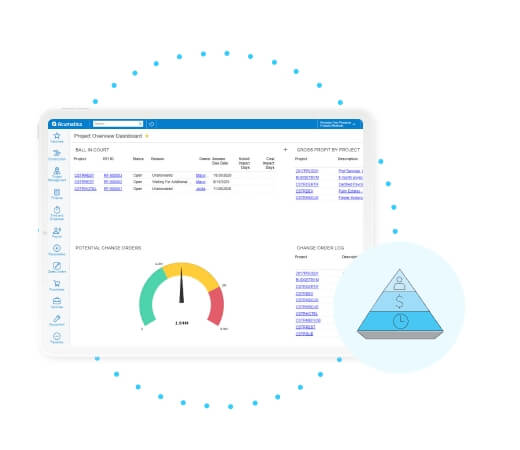
Your construction projects may suffer from poor visibility and lack of real-time data, making it difficult to manage timelines, resources, and costs effectively. This can lead to project delays and cost overruns.
Acumatica Construction ERP offers a robust Project Management module that delivers real-time insights into every aspect of a construction project, from timelines and resource allocation to granular costs. With tools for tracking progress, managing tasks, and overseeing multiple projects simultaneously, Acumatica ensures that you have the visibility they need to keep projects on track. Set up dashboards and reporting tools that give you instant access to critical project data to help you make informed decisions and avoid costly delays.
Maintaining control over project costs and budgets is a significant challenge in the construction industry. You can’t measure what you can’t see. Without accurate cost tracking and budget management, your projects can quickly become unprofitable, and you may lack the visibility even to know you’re in the red.
Acumatica’s Job Costing and Budget Management modules allow you to track project costs in real-time, comparing them against budgets, actuals and forecasting future expenses – helping you identify potential cost overruns early and take corrective action. Empower your team to monitor and control project finances, leading to improved profitability.
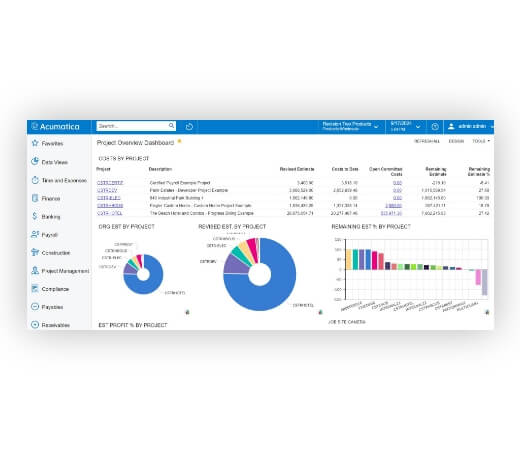
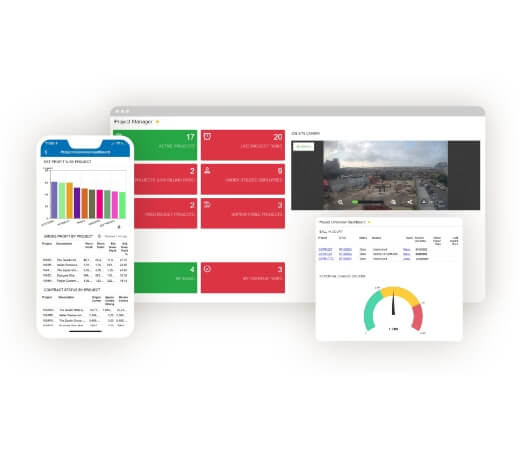
You, like many construction companies, might use a variety of tools for estimating, accounting, and project management – tools you love and want to keep. Lack of integration between these systems can result in data silos, inefficiencies, and errors.
Acumatica offers powerful integration capabilities, facilitating a seamless connection between all software systems used in construction, such as CRM, estimating tools, and accounting software. This ensures data flows smoothly between systems, reducing manual data entry and minimizing errors. Centralized data gives you a strong basis for decision-making.
Managing compliance with industry regulations, sustainability targets or safety controls, and ensuring accurate documentation across projects are ongoing challenges for construction companies. Failure to comply can result in costly penalties and legal issues, and can impact quality of your projects.
Acumatica’s compliance and document management features automate the tracking of compliance requirements, simplify reporting, and provide a centralized repository for all project documents. Set up document management workflows that keep your project documentation organized and easily accessible, reducing the risk of non-compliance and leading to easy auditing. Read more on how Acumatica helps streamline construction compliance.
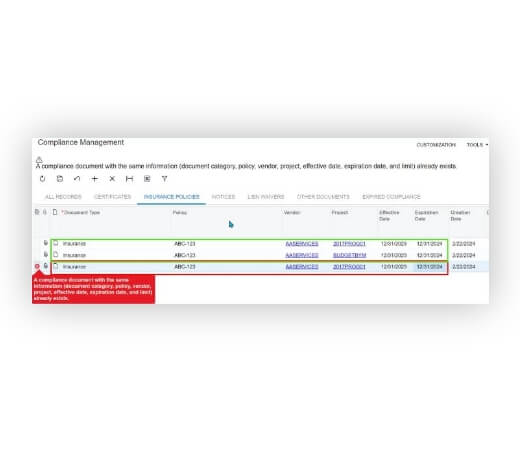
Features of the ERP for Construction
In the construction industry, managing complex projects, costs, and contracts is crucial to success. You need an ERP that not only handles these core tasks but also integrates with your existing systems. Acumatica Construction Edition, with its award-winning, user-friendly interface, is your project’s best friend — keeping tabs on suppliers, managing budgets, and ensuring every phase runs smoothly.
Acumatica's construction project software is a robust solution for project management, from resource allocation to budget controls. Real-time project tracking ensures you stay on top of every phase, keeping stakeholders and staff on the same page. Keep tabs on suppliers, manage documentation and monitor profitability. No more guesswork—just a clear path to success.
Advanced job costing capabilities give you unparalleled insight. Create projects and define tasks, then allocate the necessary employees, resources, and equipment. Regardless of the project’s complexity, project type or industry, Acumatica Construction ERP allows you to consolidate costs into financial reports.
One system, all contracts. Automate billing, manage change orders, and keep every document at your fingertips. Managing the entire contract lifecycle from one central system means accurate, automated and integrated billing, project management and change order management, and documentation-by-default for each project.
Budgets are directly connected to contracts, accounting, and the project plan, letting you manage hard and soft costs, change orders, profits, overheads, and fees, all in real time. Give stakeholders and project teams access to role-based dashboards that let them keep the pulse on their key metrics.
Communication and collaboration are essential to maintaining positive subcontractor relationships. Boost collaboration with role-based access to change orders, costs, and schedules. Even in the field, communication is just a tap away.
Keep solid documentation on either customer-owned and company-owned equipment. Track serial numbers, assign default vendors, and monitor sale and installation dates for parts. Minimize mischarges and objections by creating warranty offers for equipment or components. The system stores every piece of equipment information, making it available to field service technicians through a mobile app.
Comprehensive service management in Acumatica’s construction ERP allows you to swiftly capture service requirements, assign them quickly, and monitor progress in real-time. Optimized scheduling leads to increased revenue and greater customer satisfaction. Fully integrated into intelligent inventory, purchasing, and project workflows facilitate seamless coordination.
Customer Success Story
from Kick-off to Go-live
integrated for centralized reporting
reduction in audit preparation time
What North American Home Finance have to say about Construction Success with Acumatica:
“Our entities differ greatly – and we have over 10 of them. Acumatica was the only ERP that could handle all of our operations and customers – while connecting all our data.”
— George Lawton, CEO at North America Home Finance
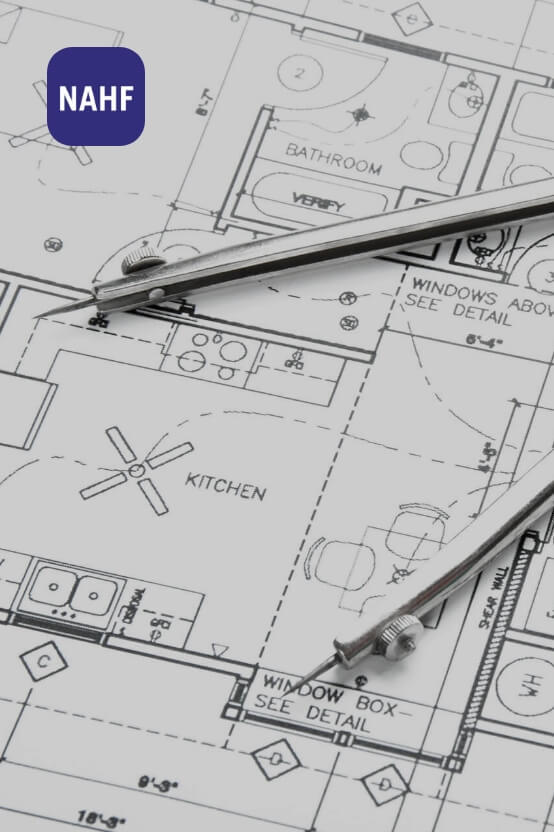
Data silos benefit no one. Acumatica, with its modular ERP and adaptable architecture, is designed to seamlessly integrate across various business functions.
From Acumatica-built integrations, like CRM and a self-serve Portal, to certified solutions for consignment, AutoCAD and construction management solutions, all built on the xRP foundation and available on the Acumatica Marketplace. Our Gold certification status from Acumatica means we collaborate closely with Acumatica and ISVs to guarantee a smooth implementation that bolsters your efficiency.
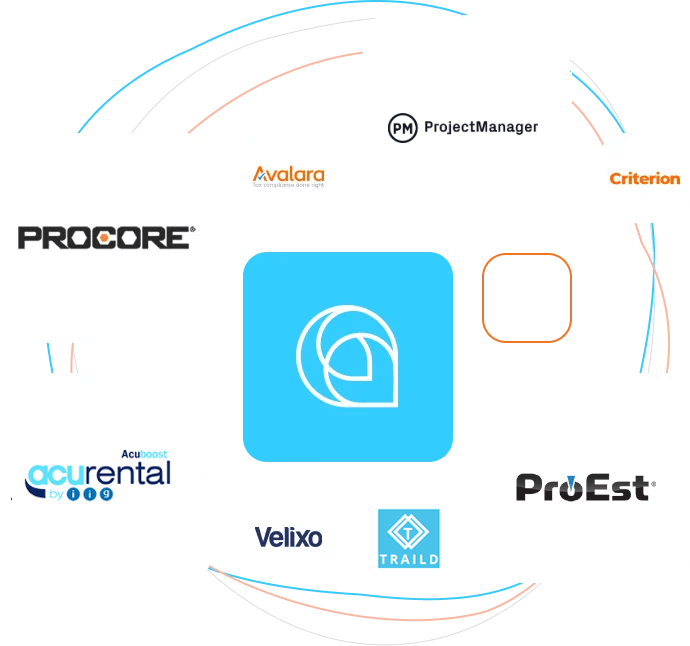

With 30 years of experience working with construction companies to help them track project costs, improve profitability, and promote growth by addressing complex challenges with simple, elegant, and powerful technology.
Led by the Director of the Construction Practice, our development team is not just responsive to client needs but also proactive in seeking opportunities to flex their development skills. They work to bridge gaps, discover innovative solutions, and anticipate the future needs of our construction clients.
Acumatica is regularly rated highly for user-friendliness and intuitiveness, but there is a lot of power under the hood. The cloud-based Construction ERP becomes the single source of truth for your organization. We’ve gathered some information that you might find useful on your search for digital transformation. No details needed, download instantly!


